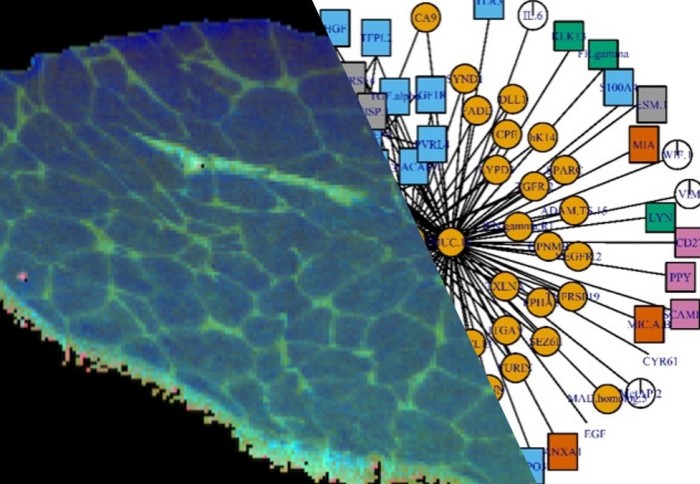National Phenome Centre expands in to proteomics and imaging

The National Phenome Centre has expanded its purview to include proteomic profiling as well as mass spectrometry imaging capabilities.
The National Phenome Centre (NPC), situated within the Department of Metabolism, Digestion and Reproduction at the Faculty of Medicine, has expansive experience in quantitative metabolomic and lipidomic profiling and bioinformatics. In complement to this existing technology, the NPC is moving towards a comprehensive phenotypic analysis of clinical and other biological samples by expanded its services to include proteomic profiling and mass spectrometry imaging capabilities.
Speaking about the expansion, Dr Matt Lewis, Director of Metabolic Profiling at the NPC, said: "We are excited to expand our team of talented scientists and build on our strength and successes in metabolic phenotyping. We’re looking forward to bringing protein measurements, spatially-resolved profiling, and associated bioinformatics solutions to a wider audience, meeting the advanced and evolving needs of our collaborators."
Proteomics
Proteomic profiling can be performed on any biological sample type, providing quantitative data on proteins as well as their regulation through post-translational modifications. Combined with other `omic technologies, such as transcriptomics and metabolomics, proteomics is the link between all layers of the cellular and clinical phenotypes.
Discussing the importance of proteomics, Dr Harry Whitwell, who will be leading this area, said: "Proteomics provides a rich source of biological information with experimental flexibility to answer many research questions."
He continued: "In my own research, we are looking to use mass spectrometry techniques to connect molecular changes to the metabolome with protein post-translational modifications (PTMs) in the early stages of cancer. We collaborate with a wide variety of other studies, ranging from the analysis of histone PTMs and loci-specific DNA-protein complexes to cellular biomarkers and the development of high throughput serum analysis for clinical studies."
For more information, or to discuss any project pertaining to proteomics, please contact Harry Whitwell.
Mass Spectrometry Imaging
Molecular spatial patterns found in biological samples represent a valuable source of information about the underlying local biochemical interactions. Mass spectrometry imaging (MSI) makes it possible of detecting and studying spatial distributions of thousands of metabolites, peptides, or proteins from a single sample. Its exploratory nature allows the identification of candidate metabolic pathways that can be further tested through other non-spatial `omics technologies, such as proteomics or metabolomics.
Speaking about the Centre's expansion into Mass Spectrometry Imaging, Dr Paolo Inglese said: "Our mission is to understand how the metabolites' spatial patterns relate to the relevant biochemical interactions for a wide variety of biological and clinical questions through mass spectrometry imaging (MSI)."
Expanding on this, he continued, "The direct detection of proteins and small molecules represents an essential aspect for generating valuable working hypotheses that can be further enriched through the employment of complementary technologies, such as DNA or RNA sequencing. Thanks to imaging, we can go beyond analysing the 'bulk' molecular composition of biological samples, making it possible to resolve metabolic signals from intra-cellular to multi-cellular scale."
For more information, or to discuss any project pertaining to MSI, please contact Dr Paolo Inglese.
Article text (excluding photos or graphics) © Imperial College London.
Photos and graphics subject to third party copyright used with permission or © Imperial College London.
Reporter
Benjie Coleman
Department of Surgery & Cancer